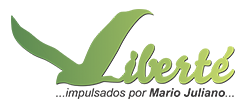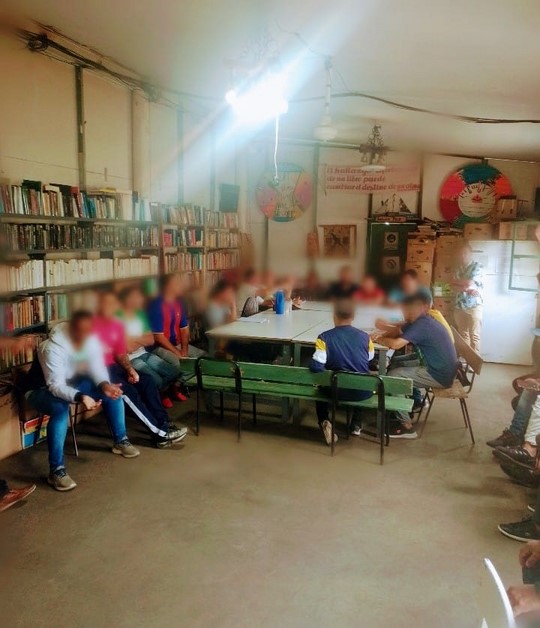In an effort to get out of the shadows that represent ignorance, today training is provided in our entity, through a workshop that deals with what access to justice is and also provides knowledge regarding outpatient treatment.
Lucas, is a comrade who has been imprisoned in the Batán prison for some time and has been working at Liberté for about nine months. He began his work as a gardener, and then moved to the warehouse, where he performs administrative tasks to this day.
But his interest in carrying out activities within the structure does not end there, therefore, he decided to undertake, with the consent of the cooperative authorities, a workshop related to what access to justice means.
Thus, he became a non-formal trainer, for which reason he has taken great responsibility to carry out the coordination of it, which is provided on Mondays and Thursdays of each month.
He tells us in this report that, in recent times, this issue is very current, and explains the differences between what is "access to justice" and "access to justice."
He also cites that many people confuse and believe that accessing justice is directly dealing with criminal cases, and it is not so, accessing justice, according to what Lucas tells us, in this case it is being able to understand, In what way, a conflicting procedure can be unlocked.
And this is for all people, whether they are deprived of their liberty, as well as in the free world, in short, for all those who, in one way or another, feel that their rights have been violated.
This type of situation may well be due to what is called institutional violence, since they are not dealt with, as they should, in a registry of people, for example, with a procedure as simple as obtaining a driver's license, or in any other public distribution, where they do not correspond, with the appropriate requirement, by those who attend the place, in search of answers, according to their interest.
This training is used to know where to go when a right is violated, or when he does not know the way to get what he wants.
Access to justice, says Lucas, does not stop running parallel to what is to justice, the latter is going to court, accessing what one wants or needs at the moment, accessing those rights that have been violated. .
What is intended, indicates Lucas, in this case is to guide those who are deprived of their liberty, namely, that, by their own right, they have access to fight for their rights, understanding that they have been denied, violated or that they just don't know.
In addition, he says that when one has just entered a penitentiary unit, he is full of uncertainty, with fears of the unknown, and it does not arise for him to ask or claim about any or all of his rights.
Lucas tells us about the preparation of a booklet, which was initially distributed among some inmates who work at Liberté, in the opportunity to develop the workshop that talks about the work of our space, "the Liberté chair", which was attended by strong endorsement of the Secretary of University Extension of the Faculty of Health Sciences and Social Work, belonging to the National University of Mar del Plata.
Thus, Lucas welcomes the promotion of the preparation of many instructional booklets, for those primary, who when they just enter prison, have a great ignorance of everything that has to do with access to justice.
That way they know how to perform in the different areas of the unit, that they have references in each pavilion to whom they can ask, who is the attorney, how do I go to court, what should I do to study, to work, that is everything related to their performance within a penitentiary unit.
For all this, we form a work team at the service of the inmate, the purpose is to guarantee and facilitate, for the benefit of the inmate, through various channels, access to justice, Lucas generally says, is to try to help the most vulnerable.
It is articulated with other organisms of the penitentiary service itself, and also of the free environment. As for those people in whom it is detected that they do not know how to read, they are referred to the area of education, also those who do not have a job, something similar happens, they are directed to find it.
There is an email, directly with the courts, where they can send the writings with their requests, which in principle we do for them, says Lucas, although he also warns that they are taught to make their own writings, and that way they have access to justice from our workshop.
In short, they are taught, that they learn, what the rights are.
Source: Liberté Press






